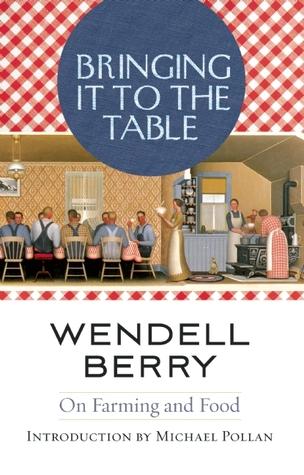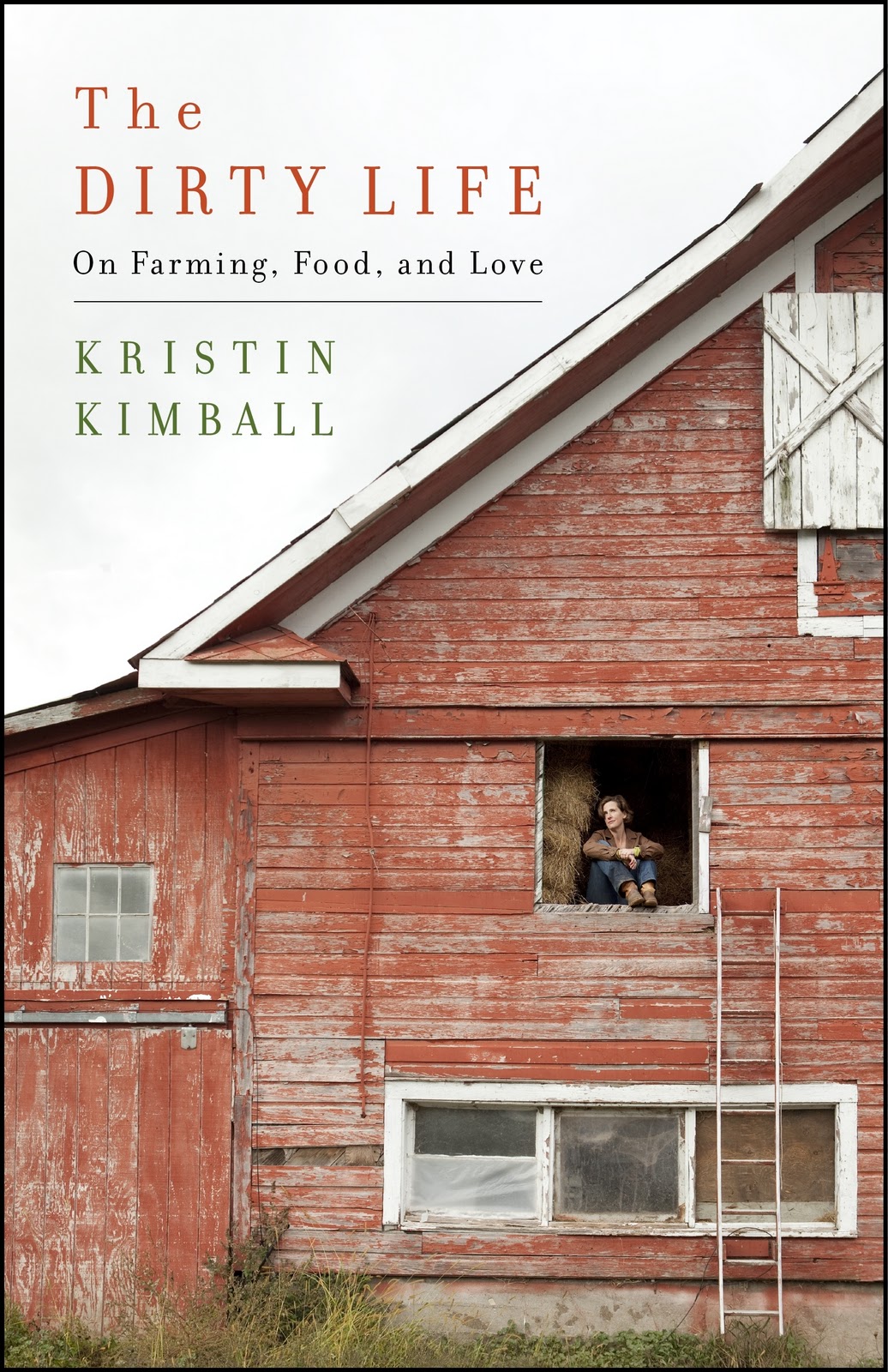You’ll excuse me for saying so, but there are an awful lot of books out there written by middle class white women who give up their lives in the city and move to the country to start farms, and then write books about it. I know this because I’m reading some of these books.
The first one, I was really excited to get my hands on -- Kristin Kimball’s The Dirty Life – and it was alright. Pretty much what it says on the box, a memoir that, in the way that memoirs do, informs on the subject matter but isn’t really instructional or informative by nature. I enjoyed it for that. But the writer, a New York native, had an annoying habit of finding her new rural neighbors to be at least as much a source of amusement as they are human beings. She doesn’t completely screw it up, but the tone gets a little too “bless their hearts” at times. As does her amusement with herself for being in the country and running a farm. But she has respect for the occupation (anyone would, after doing it for more than a year) and a lot of gratitude for the kindness of her neighbors, even if she does paint the town a little Mayberry at times.
But I have to give her some room, I guess, because she’s city folk, and it is what it is.
Mostly, it was a sweet story about how she met a farmer and fell in love, and how her life ended up taking a sharp left as a result, as well as all of the things she learned along the way. It’s well written and very readable. Maybe especially people who grew up in the city would find it amusing – I don’t know. But I connected to some of the issues that lay in the margins of the book, about how she gave up ‘her world,’ in some ways, to move to his, and how that didn’t always feel fair or good, whether it was a result of her own free will or not. I don’t know why I might find that easy to relate to. It’s a mystery.
She also didn’t go out of her way to paint some pretty picture about life in the country. She told the truth, which is kind of rare among the influx of homesteading-type writers and bloggers that are popping up everywhere. Some of my favorite passages in the book were about her frustration and struggles with trying to get used to plowing with horses, as well as the love she came to have for the animals. One review I saw for the book expressed disappointment that it wasn’t more about the “escape” from city life and the tranquility of the country, since that’s what the reviewer sits in her cubicle and dreams about every day – “She just writes a lot about farming.” Well. You know, the funny thing about living in the country is that you still need to eat and sometimes even buy things. It’s not a permanent vacation.
On the complete opposite end of the spectrum is the book I’m reading now, Barbara Kingsolver’s Animal, Vegetable, Miracle. I knew what I was getting into with it, thanks to a ton of reviews calling the book “preachy.” It is preachy, and it’s also pretty condescending at points, in the way that foreigners who have been in Korea for one whole year can be condescending -- it seems like a lot of her assumptions about what “Americans” do and do not know about food and farming might be based on things she didn’t know until she started her own farm. It just has that tone about it, instantly recognizable to any long-timer in Korea with an internet connection or who has had occasional close encounters with The Foreigner Who Will Explain Korea to You.
She can also sometimes slip into a weird prose style that can be really distracting. She’s likes hyperbole and uses some strange turns of phrase that I suppose are meant to be poetic. A little cheesy. Sometimes really dramatic.
She can also, surprisingly, be really into the hokedy-hoke ‘we country folk’ thing. She grew up in farming country, so I’m not sure what that’s about, but she uses the phrase, “just another day in/on/at” in an ironic way, way too often.
I’m sorry. I just feel like agricultural communities have enough of a stereotypical burden to carry without people yukking it up from the inside.
 That all having been said, the book is positively packed full of great information – about plants and animals, farming, sustainability, the politics that surround all things agricultural, the history of farming, the politics of eating, canning, slaughtering ... all kinds of stuff. And it’s worth it, in my opinion, to try to squint through the hokey to get to the good stuff.
That all having been said, the book is positively packed full of great information – about plants and animals, farming, sustainability, the politics that surround all things agricultural, the history of farming, the politics of eating, canning, slaughtering ... all kinds of stuff. And it’s worth it, in my opinion, to try to squint through the hokey to get to the good stuff.
I am saving the best for last, though -- a kind of bookend to this particular reading spell, which started with The Third Plate, which was definitely better and more informative than either of these two -- Wendell Berry’s Bring it to the Table. Dan Barber offers a great look at sustainability and organic farming from a chef’s point of view, but Berry is a farmer who’s been at it from that end for five decades (as opposed to a few years, like the yuk-it-uppers). If I barrel through a little bit, I can be reading it by the weekend.
By the way, deadline is officially over, so I also plan on giving homemade mozzarella a try for the first time, sometime this week. Wish me luck. Cheese freaks me out, but damned if it ain’t delicious. If all goes to plan, mozzarella will just be the first step.



Thanks for the perspective and reading recommendations. I'm definitely city folk and my experiences with WWOOF and other small farming/gardening barely scratches the surface. Hope you don't mind if I link to something I wrote about a farming trip last year. Happened to be reading Wendell Berry at the time so was inspired.
ReplyDeletehttps://solidaritystorieskr.wordpress.com/2015/01/05/the-dignity-of-continuity-preserving-korean-farming-and-food-sovereignty/
That's funny because, last year in language school, one of the debate topics was about opening the rice market, and it was one of those topics where people just got stuck on the 'pro' side because someone had to be -- no one wanted to argue the benefits.
DeleteAnd I never mind linking! Link away.
I'm looking forward to the Berry. Kingsolver is full of a lot of good information and she makes a lot of good points, but she's kind of annoyingly obsessed with trying to argue that organic and cooking everything at home is a realistic option for *almost* everyone, which isn't true.